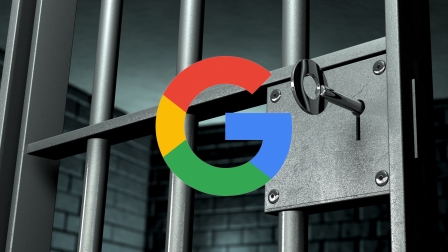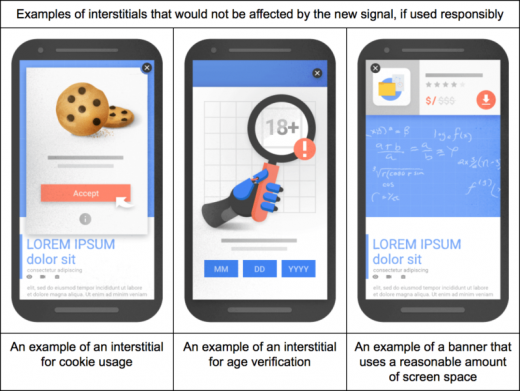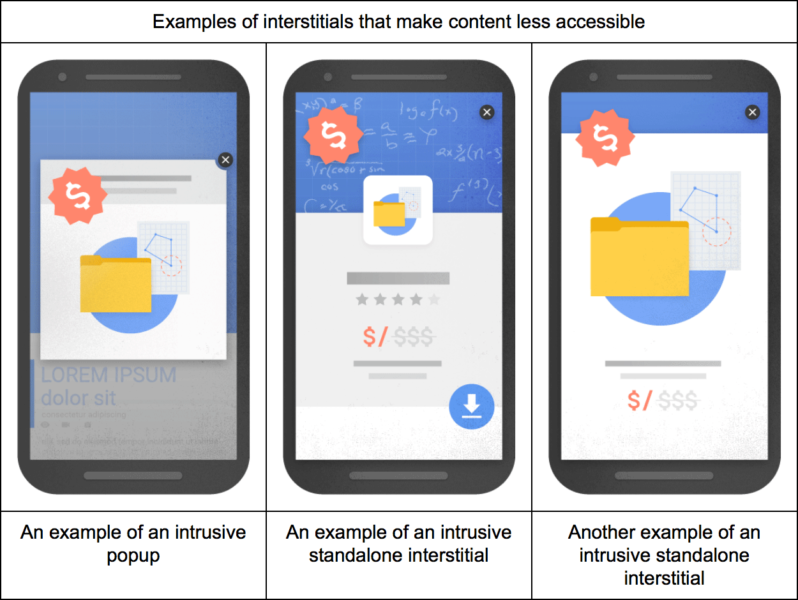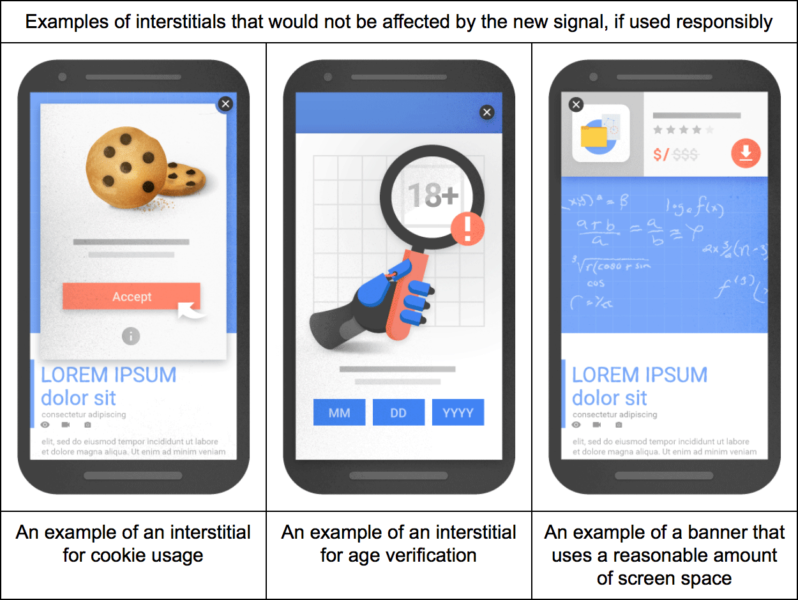Google will punish “intrusive interstitials” with a ranking penalty in 2017
Google says “responsible interstitials” can remain; some may see the move as part of a “war on apps.”

Google announced that is dropping the “mobile-friendly” label in search results. The company says that now 85 percent of pages in mobile results are in fact mobile-friendly. Google also said today in a blog post that it will impose a ranking penalty on “intrusive interstitials” that impede user access to content.
According to the post:
Pages that show intrusive interstitials provide a poorer experience to users than other pages where content is immediately accessible. This can be problematic on mobile devices where screens are often smaller. To improve the mobile search experience, after January 10, 2017, pages where content is not easily accessible to a user on the transition from the mobile search results may not rank as highly.
Here are the types of interstitial ads that could be penalized:
- Showing a popup that covers the main content, either immediately after the user navigates to a page from the search results, or while they are looking through the page
- Displaying a standalone interstitial that the user has to dismiss before accessing the main content
- Using a layout where the above-the-fold portion of the page appears similar to a standalone interstitial, but the original content has been inlined underneath the fold
Not all interstitials will be penalized, however. Google said that the following types of units would be acceptable “if used responsibly”:
- Interstitials that appear to be in response to a legal obligation, such as for cookie usage or for age verification
- Login dialogs on sites where content is not publicly indexable. For example, this would include private content such as email or unindexable content that is behind a paywall.
- Banners that use a reasonable amount of screen space and are easily dismissible. For example, the app install banners provided by Safari and Chrome are examples of banners that use a reasonable amount of screen space.
While Google says it won’t penalize “app install banners,” it won’t allow full-screen app install interstitials. This prohibition has been in place since November of last year. At the time, Yelp’s Jeremy Stoppelman accused Google of seeking to “protect its own search monopoly” with the rule.
Stoppelman argued that Google was ultimately seeking to prevent users from downloading apps because they’re less likely to use Google search thereafter. He used the example of local search and Yelp in making the point.
Google would likely dismiss such claims, pointing to the fact that it will not penalize app-install banners. However, one question here is why Google will allow near-full page interstitials for cookies and age verification (below) but not app-install units?
Marketing Land – Internet Marketing News, Strategies & Tips
(27)
















